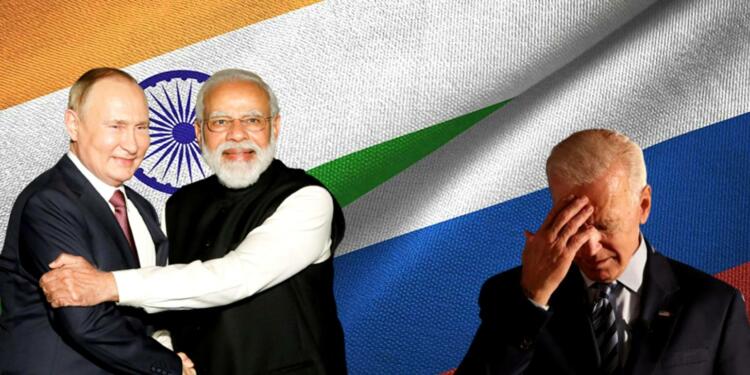- Russia has invited India to participate in Eastern Economic Forum
- Russian Far East and Arctic region is full of oil reserves and India is a big stakeholder with $15 billion total investments
- Chennai-Vladivostok corridor will play a key role, in carrying out trade in the Far East region
For about half a year now, western countries have been trying to get India on the anti-Russia sanctions bandwagon. Well, India did not listen and at the cusp of European winter, India is the one emerging as a net benefactor of those sanctions. Now, after the formal invitation to the Eastern Economic Forum, Russia is asking for India to enable yet another front against the West’s self-destructing sanctions.
India invited for Eastern Economic Forum
According to a report by Republic TV, on July 29th, Russia invited India to attend the 7th Eastern Economic Forum. The forum will discuss issues involving increasing business prospects around far Eastern and Arctic regions. It will also include a high-quality presentation on investments in the Russian component of the region. The 3-day high-profile meeting will be organized in Vladivostok. A formal invitation to India was extended by Nikolay Korchunov, Ambassador-at-Large for Arctic Cooperation of the Russian Ministry of Foreign Affairs.
Russian Foreign Ministry stated, “Indian delegation was invited to participate in the Arctic segment of the 7th Eastern Economic Forum in Vladivostok on September 5-8, 2022, which will include a presentation on the investment potential of Russian regions,…”
Potential of Russian Far East
Eastern Economic Forum was established in 2015 through a decree by Vladimir Putin. Russia’s primary nationalistic motive was to utilise the untapped potential of the region’s natural reserves. Currently, only 20 per cent of Russia’s population lives in the region, all thanks to extremely cold weather.
But, the area is immensely rich in natural resources. The region is full of resources like fish, oil, natural gas, pulp, wood, diamonds, iron ore, coal, gold, silver, lead, and zinc among others. Recently, Rosneft, a Russian oil company announced that it has discovered 82 million tons of oil in Russian arctic, which is connected to the Far East.
India’s stake in the Russian Arctic and Far East
Probably, India was well aware of this potential. In both the Arctic and the Far East, India has cumulatively invested $15 billion in oil and gas projects. Additionally, Russia is also uplifting the economic prospects of the region with 2,700 projects through state support. Here also, India is not far behind. During the 6th conference of EEF, India and Russia agreed to increase cooperation in shipbuilding, agro-industry, ceramics, strategic and rare earth minerals, and diamonds.
Given that future of the India-Russia economic partnership is looking brighter, the modalities of transportation are also an issue that needs a relook. INSTC is well emerging as a better catalyst of trade, but trade with the far East requires conquering maritime. For this purpose, both countries have decided to open a Chennai-Vladivostok maritime corridor.
Chennai-Vladivostok Maritime corridor on the way
The sea route covers 10,300 kms. It is expected to cut short the current 40 days shipment timing to 24 days. The route will sort out the recurring issues like an absent private sector and poor logistics which have historically hampered bilateral trade between both countries. The trade route will provide multiple points of advantage to both countries.
It will drastically increase the India-Russia oil trade which is already at an exceptional level at this moment. Though the main reason for currently increased trade is Western sanctions, the maritime route will solidify it. In the wake of India’s oil demand increasing by 1.5 times in 2040, it will be immensely beneficial for us, and at the same time, Russia won’t need much of the Chinese market.
Time to get dividends
Similarly, the route will also shorten India’s gas dependence on Gulf. It sounds unbelievable, but our 40 percent of gas needs are fulfilled by Qatar alone. On the other hand, the demand for Russian LNG has stagnated in Japan and South Korea, which are its traditional destinations. The maritime route can alter equations for both these countries.
In the last 7 decades, Russia has rarely acted antithetical to India’s interests. It has been a reliable partner for India. Unlike other countries, it does not interfere with India’s policies. For this very reason, India has not participated in the sanctions war and now we are getting the dividends.
Support TFI:
Support us to strengthen the ‘Right’ ideology of cultural nationalism by purchasing the best quality garments from TFI-STORE.COM
























